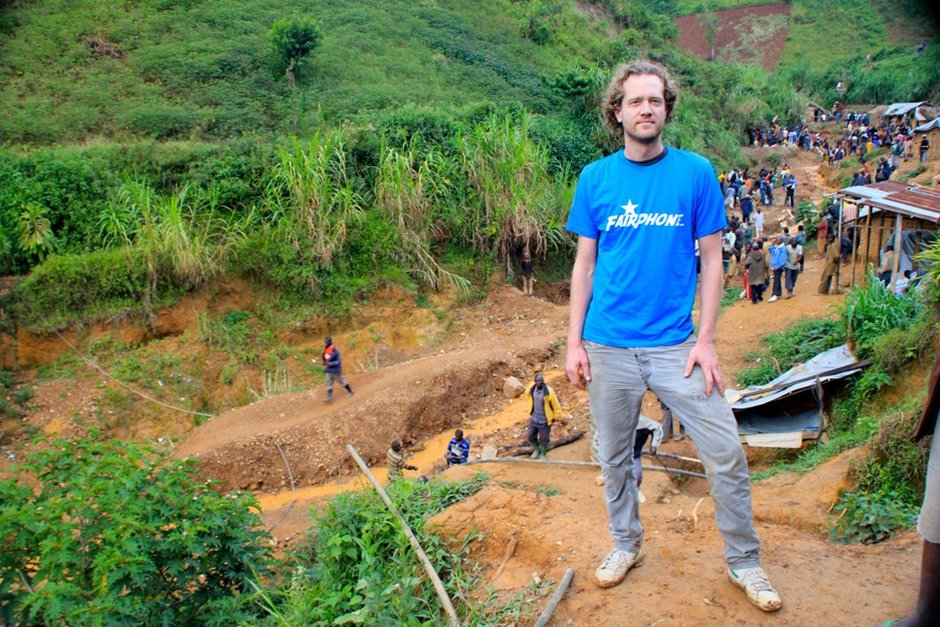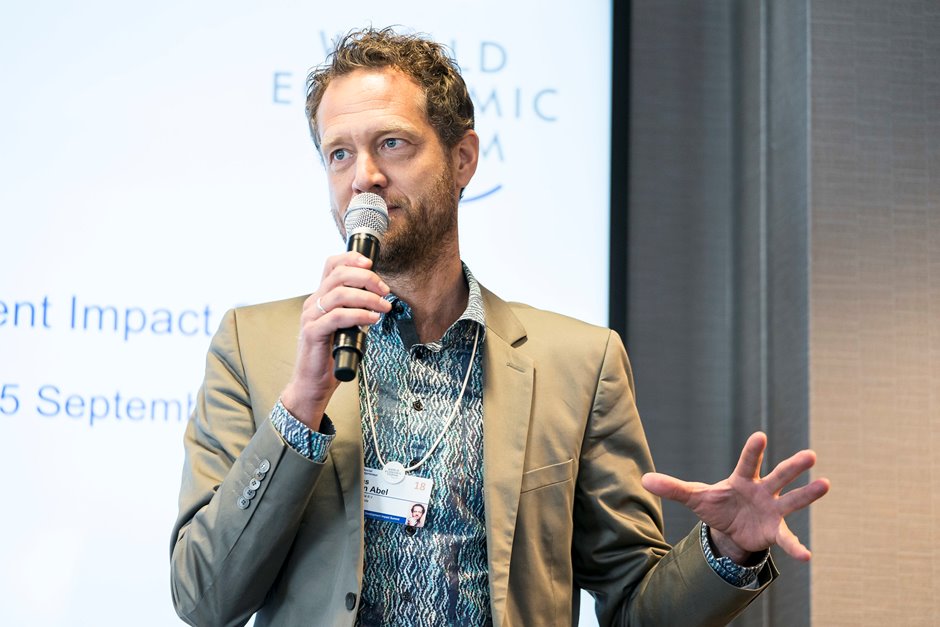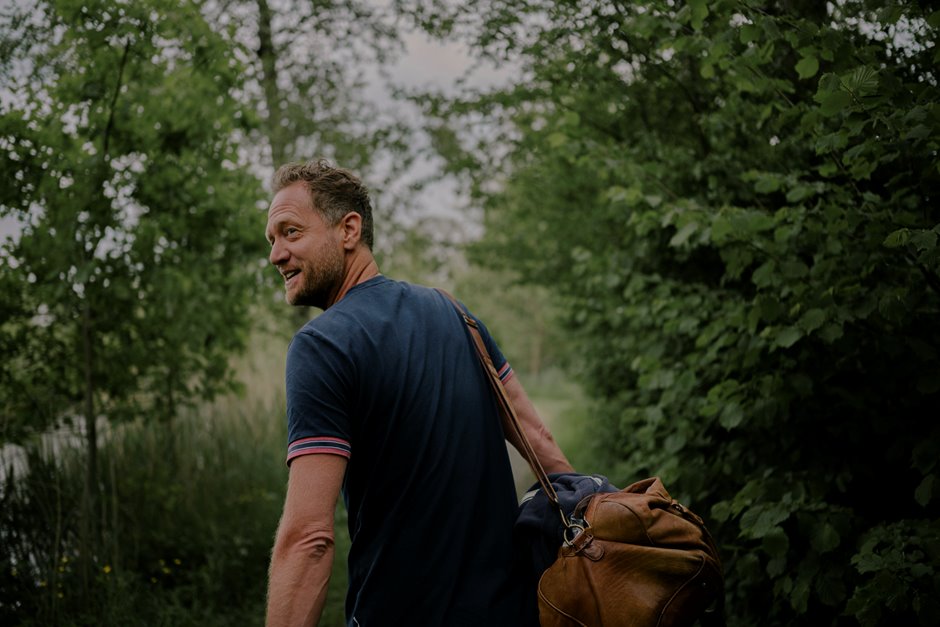Change comes from seeing the invisible

Experience expert
About eighteen months ago, HKU asked Van Abel if he would be interested in a fellowship. He sees this as a nice opportunity to lend his vision as entrepreneur to the course of HKU Art and Economics. He accepts. As an experience expert, he knows the concerns of creators and what you must do to transform your brilliant idea into an actual product that makes a large-scale impact. The latter happens to be just what Van Abel has achieved quite successfully a couple of times. He managed to effectively link the arts to the economic sphere. And training students who want to do just that, is what HKU Art and Economics does. Van Abel: ‘it felt only logical that I would be linked to Art and Economics as a fellow. I can serve as the bridge between the maker and the economy; between artists and corporations. I also saw it as an opportunity to enrich the economic-artistic education with a dose of systems-changing logic. After conversations with lecturers and a presentation, I was unfortunately forced to take a step back due to long covid. I quit my companies and from that moment on, my fellowship had to be put on hold as well.’
When the Nijmegen-based Van Abel returned six months later for a guest performance at HKU’s opening of the academic year, Arlette Kerkhof asked him to join HKU-X. Van Abel: ‘Arlette told me about the many great ideas and concepts stemming from HKU-X and about the people who want to introduce these ideas to the market. I could contribute to this as not necessarily a fellow, but as guest lecturer. A few weeks ago, we had some talks about this. One of the things I noticed is that the connections for financing are still very limited. However, when you want to bring your idea to the market, you are selling something that doesn’t exist yet. It all depends on the story you have and the funds you are raising. This requires us to have an ecosystem around HKU-X, with a network of contacts that can bring you closer to investors, such as the DOEN foundation.’
Balancing act
Van Abel also noticed that HKU-X wants to train the designers towards getting their nice ideas out in the world themselves. ‘But is the designer always the best person to go and do this? Perhaps you should let go of the designer when searching for ways to market a concept. This balancing act happens a lot with creative people: your design might be innovative, but entrepreneurial excellence is just as important for truly bringing about change. It’s absolutely true that HKU has a keen eye for the connection to the professional field. You are prepared for the professional practice and you have good employment perspectives after graduating. This was already the case when I was studying there. But still, this doesn’t mean the same as entrepreneurship. At HKU-X, I see that the offered support is solid, but a genuine ecosystem is still lacking. Especially when it comes to investors. And without large investors, it's impossible to scale up and truly make a large impact.’

Nature as shareholder
Van Abel wants to explore what’s behind the scenes of the economy, precisely because the economy is the dominant system that decides everything in life. ‘The economy will always be at the centre, with its links to the industry that has brought us so much welfare and equality. We are part of a global economy, after all… Only when you place your company right in the middle of it, you can make a difference. I see lots of creatives and activists who distance themselves from capitalism and depict it as some kind of evil. They will have a hard time making a difference within this capitalist system. That’s why I say: ‘use the economy to your advantage to reach goals, while sticking to your own mission and creativity. You build something and then suddenly attack the system from the inside. Take Patagonia Works for example: to everyone’s complete surprise, they suddenly announced that “nature will be their only shareholder”. In that way, you can inspire a whole economy’.
Statement: capitalism has caused more inequality than equality
Van Abel: ‘I call this a beautiful and daring statement. The question is mainly: how much inequality will it lead to in the future. Only then can we take stock and answer this statement. Looking back, I have the idea that the sixties and seventies brought more economic equality for a large group of people. The democratising effect related to consuming enabled the middle classes to flourish. But by now, we also know the negative effects of consuming all too well: the system has eventually provided a strong breeding ground for greed. Greed – and not the loss of biodiversity in itself – is the largest problem when it comes to sustainability. When we can eradicate greed from this world, the other solutions will automatically follow suit’
Farm
The winner takes all. That is the huge fault woven into the capitalist system, according to Abel. ‘But every system that allows room for such kind of behaviour, will cause greed. Look at other models and you see that they too have ended up as a caricature. Take communism: founded on an admirable principle of equality, but as soon as greed and corruption took hold, it went all wrong. I’m on the side of those who want to transform the system from the inside, from a more philosophical level. We must humane values to have a place in the operation of companies, and realise that creation by definition also means destruction. The agreements that we make about how those systems function and on what basic values they rest, are what’s most important. More than just the system in itself. The market logic and mechanism has brought us lots of equality in consumption and access to prosperity. Yet at the same time, capitalism has also caused us to get detached from everything we create and consume. Do I see a self-sustainable lifestyle as a solution? No. Growing your own food, independent from the system, but still falling back on the luxury of healthcare when you fall ill? How independent is that? The same goes for safety or communication – in the end, everyone would rather keep his phone. I won’t protest if you choose to live in full isolation of all the worldly problems, but doing so won’t add to any systemic change. Therefore, anyone who retreats to a small farm somewhere in the middle of nowhere, should not claim they are thereby changing the world.’